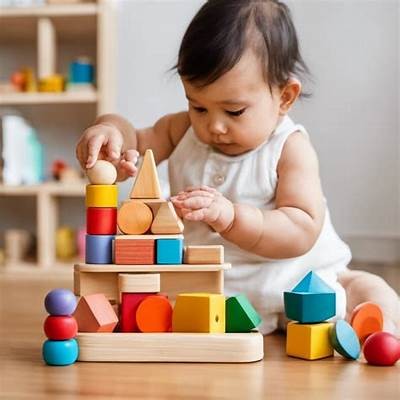Exploring the Benefits of Pragmatic Free Play: An Engaging Demo Experience for Child Development
The Essence of Pragmatic Free Play
Pragmatic free play is a vital aspect of child development that focuses on children’s natural tendencies to explore, experiment, and engage with their environment in a relaxed and unstructured manner. This form of play is distinct from guided activities, allowing children to set the rules, define the goals, and utilize their creative thinking skills. Through pragmatic free play, children not only enjoy but also engage in critical cognitive and social development processes.

The Importance of Play in Child Development
Play is not merely a pastime for children; it is essential for their overall development. It fosters creativity, enhances problem-solving abilities, and supports emotional well-being. During play, children are faced with various challenges that help them navigate social interactions and build relationships with peers. Moreover, free play encourages resilience as children learn to cope with failures and successes in a safe environment.

Benefits of Pragmatic Free Play
Research shows that pragmatic free play has numerous benefits for children. It enhances cognitive flexibility, allowing children to shift their thinking and approach problems from different angles. Additionally, free play promotes language development as children engage in imaginative scenarios that require communication and negotiation. Furthermore, social skills are honed as children collaborate with friends and work through conflicts, fostering teamwork and empathy.

Creating an Engaging Demo Experience
To showcase the benefits of pragmatic free play, creating an engaging demo experience is essential. This experience should be thoughtfully designed to encompass various play scenarios that facilitate exploration and creativity. By providing diverse materials and open-ended challenges, children can immerse themselves in play that stimulates their imagination and invites them to problem-solve.

Elements of an Effective Demo Setup
When setting up a demo experience, consider including a variety of resources such as building blocks, art supplies, and natural elements that encourage hands-on exploration. Incorporating outdoor spaces can also offer a dynamic environment where children can run, jump, and explore freely. The role of facilitators is crucial, as they can guide children without dictating their play, allowing for autonomy and self-direction.

Fostering Creativity Through Play
Creativity is one of the most significant outcomes of pragmatic free play. When children are given the freedom to create, they often generate innovative ideas and solutions. In a demo experience, activities that encourage imaginative play, such as role-playing or constructing unique structures, can highlight this benefit. Facilitators can encourage children to express their creativity through open-ended questions and challenges that stimulate their thinking.
Assessing Developmental Outcomes
To assess the effectiveness of pragmatic free play, it is important to observe developmental outcomes. Tracking progress in areas such as communication, social interaction, and problem-solving can provide valuable insights into children’s growth. Using observations from the demo experience, facilitators can identify strengths and areas for improvement, enabling tailored support for each child’s development.
Conclusion: The Future of Child Development Through Play
In conclusion, pragmatic free play is a powerful vehicle for child development. By creating engaging demo experiences that showcase its benefits, we can highlight the crucial role of play in fostering cognitive, social, and emotional growth. As we continue to explore the dynamics of free play, embracing its principles can lead to a brighter future for children, where their natural curiosity and creativity thrive through unstructured exploration.
Encouraging Parents and Educators to Embrace Play
It is essential for parents and educators to understand and embrace the value of pragmatic free play. By providing opportunities for children to engage in unstructured play, they can contribute significantly to their development. Workshops and demonstrations can equip parents and educators with the tools to create environments that promote limitless play experiences.
Final Thoughts on Play and Development
As society continues to evolve, it is vital to recognize the enduring importance of play in children's lives. Simply put, by advocating for environments where play is prioritized, we can cultivate a generation of innovative thinkers, empathetic individuals, and resilient problem-solvers.
Call to Action: Supporting Pragmatic Play Initiatives
Let us take actionable steps to support initiatives that promote pragmatic free play in communities, schools, and home environments. Together, we can foster a nurturing atmosphere where children can thrive and develop their potential through the enriching experience of play. ```
